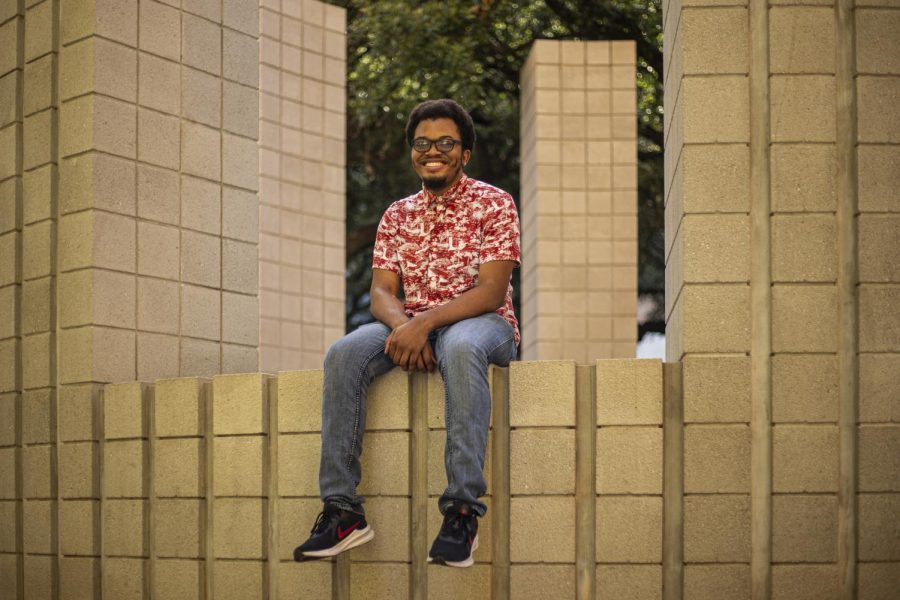Computer science sophomore interns at Amazon, hopes for more Black representation in industry
August 30, 2022
A preteen Kylan Duncan sits at his computer, bored of playing Roblox and looking for challenging ways to pique his interest in problem-solving.
“I was like, ‘Let me learn how to actually make the game,’” the computer science sophomore said. “I learned how to program and code, (then) managed to make my first game.”
Duncan said he took his interests in programming and coding well beyond middle school. After his freshman year of college, Duncan flew to Seattle to work as a software development engineer intern under the Amazon Propel Program, returning to campus after a summer of putting his passions to action.
However, Duncan said he found a similarity between living in Seattle and majoring in computer science — a lack of Black representation. Just over 7% of Seattle’s population is Black, according to the U.S. Census. At UT, Black students make up 2.77% percent of all undergraduate computer science majors, according to the UT-Austin computer science department.
“(In my first year), I didn’t see any other Black students in my classes, especially not in computer science classes,” Duncan said.
The underrepresentation of Black people in UT’s undergraduate computer science program reflects a broader inequity within the professional STEM industry in the United States. Despite representing 11% of all employed adults in the United States, Black people make up 9% of all STEM jobs, 7% of computing jobs and 5% of engineering jobs, according to the Pew Research Center.
Programs like APP work to combat the inequities found in STEM fields. Duncan said he would not have had an Amazon internship without it. After getting rejected from a general software development engineering internship position, he received an offer from APP, which actively seeks to hire students in underrepresented groups, including but not limited to Black, Latinx and Native American applicants.
“It was a really nice surprise,” Duncan said. “I got this offer, and all of a sudden, I am flying to Seattle. (When I get there,) I see a bunch of other Black interns. Being able to see other Black computer scientists and interact with them gave me a sense of security (and) community.”
In addition to finding community in Seattle through the APP internship, Duncan said he found a place within UT’s computer science department at the Association of Black Computer Scientists, where he serves as the corporate officer alongside organization president Gbemiga Oyenubi, a computer science senior.
When Oyenubi transferred into computer science during his sophomore year, he said he searched for peers to help him navigate the field, leading him to join ABCS, a place where he could meet students with similar experiences.
“I had a lot of impostor syndrome, which I’m sure a lot of other computer science students have, especially people from other diverse backgrounds, such as women, Hispanic people and the LGBTQ+ community,” Oyenubi said. “(ABCS) was a place where I belonged.”
ABCS webmaster Samuel Osibamowo, a computer science sophomore, said the organization offers Black students a way to create their own space at a predominately white institution.
“As long as you can find your mini HBCU (Historically Black College or University) or your mini Black friend group where you can interact with those Black students, the entire experience (is) still worthwhile,” Osibamowo said.
Duncan said that moving forward, he wants more representation, hoping to see more Black people within UT’s computer science department and the tech industry.
“I want to feel that when I walk into a computer science class, I’m not the only Black person,” Duncan said. “I’m working towards (encouraging) more people to get into the tech industry because there is a lot of opportunity, and you can find something you might enjoy out of it.”












